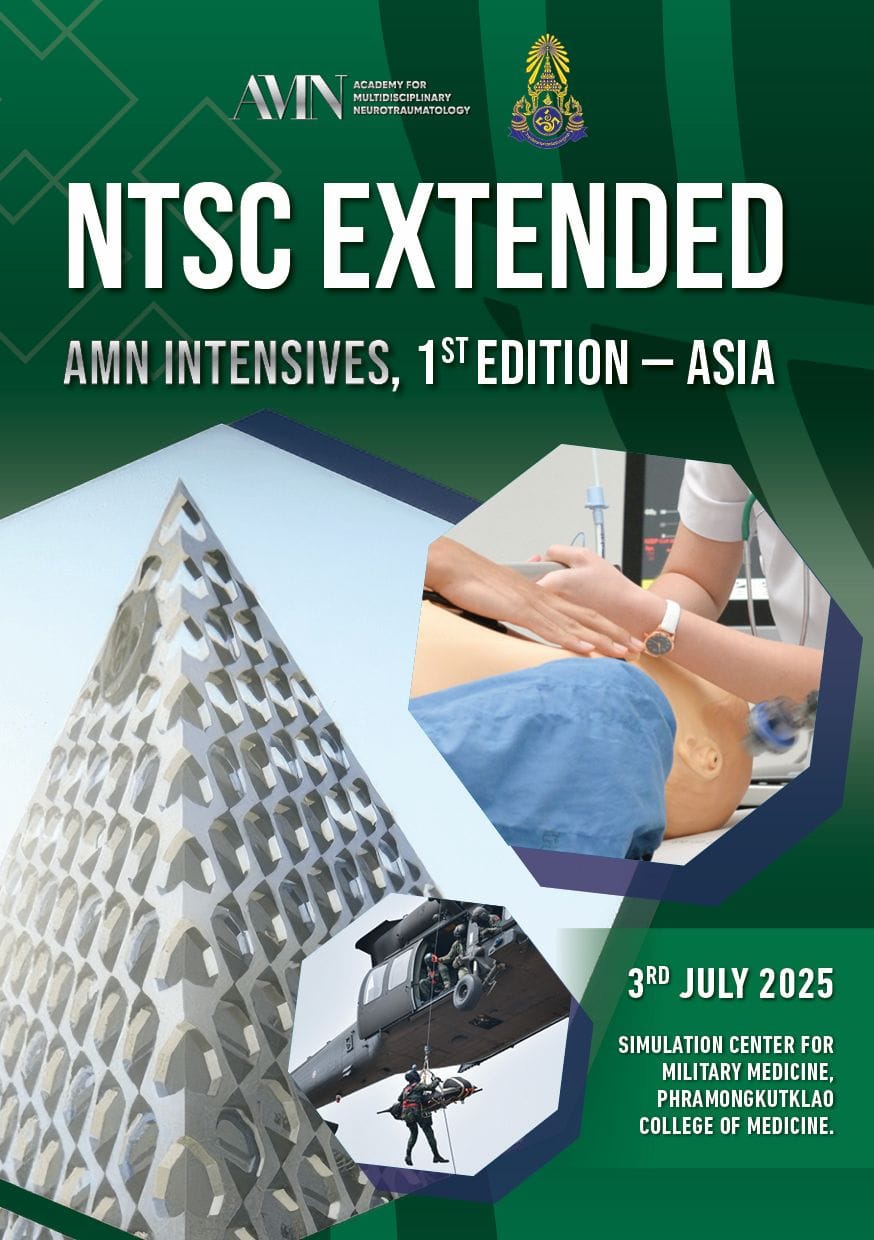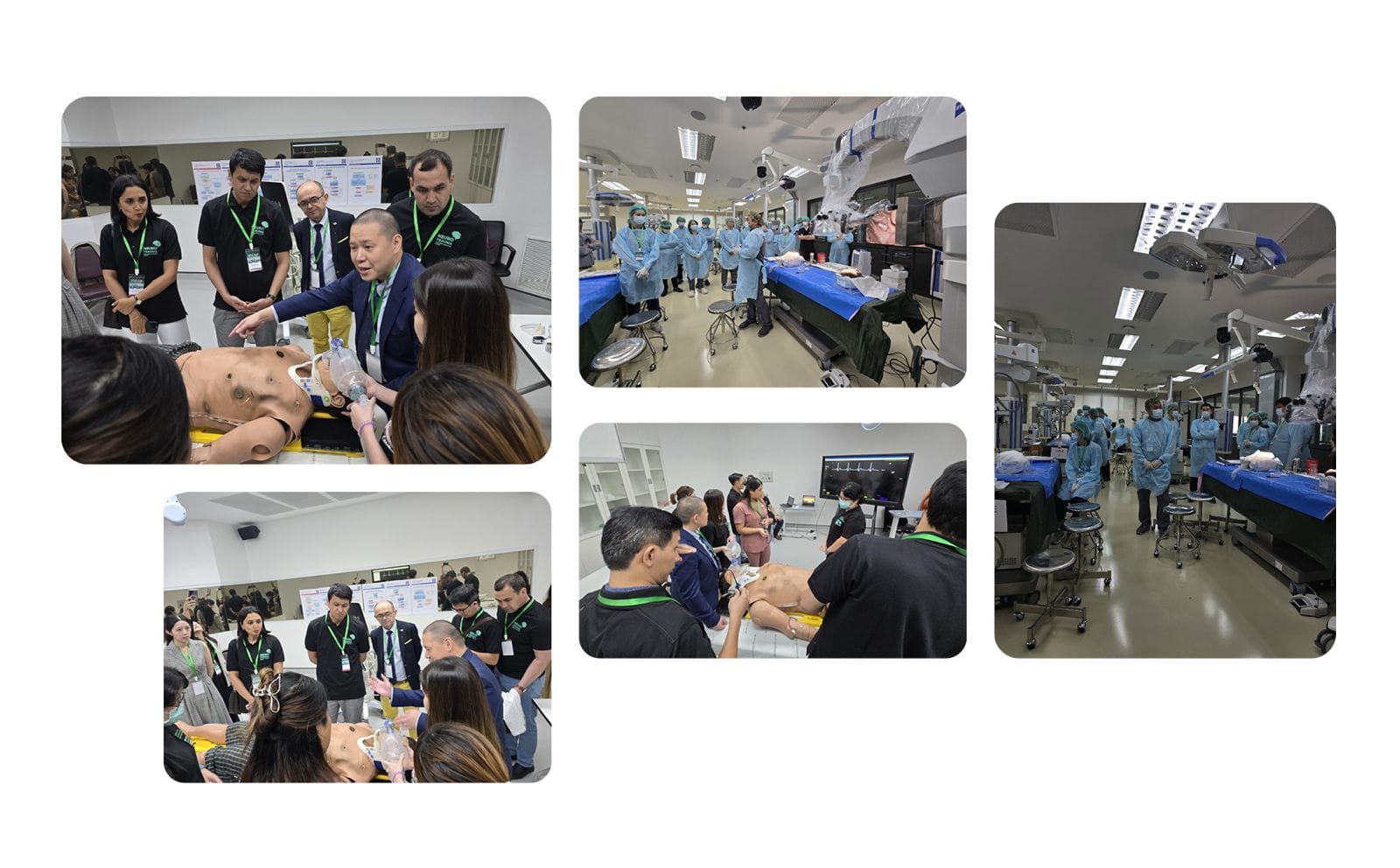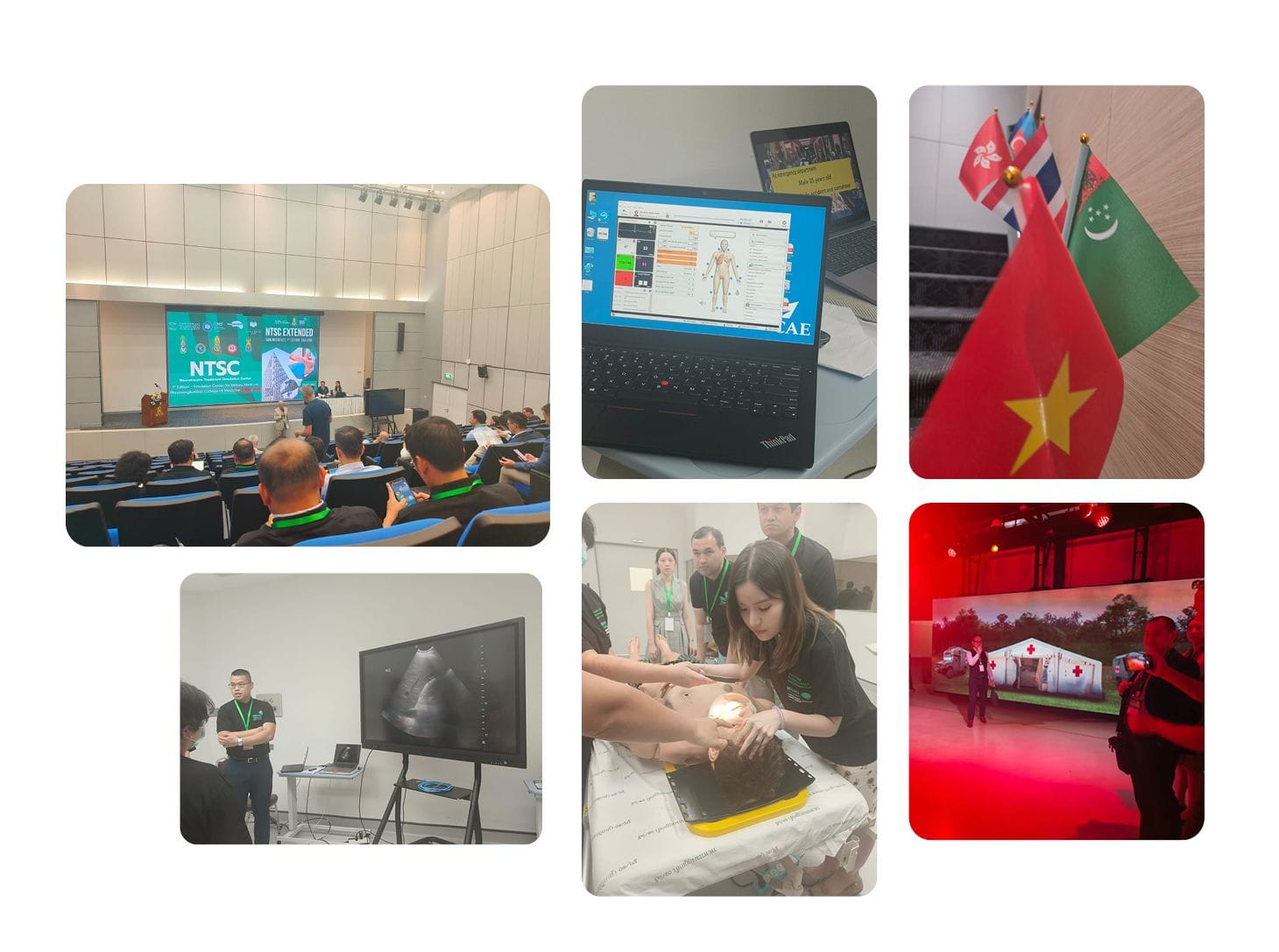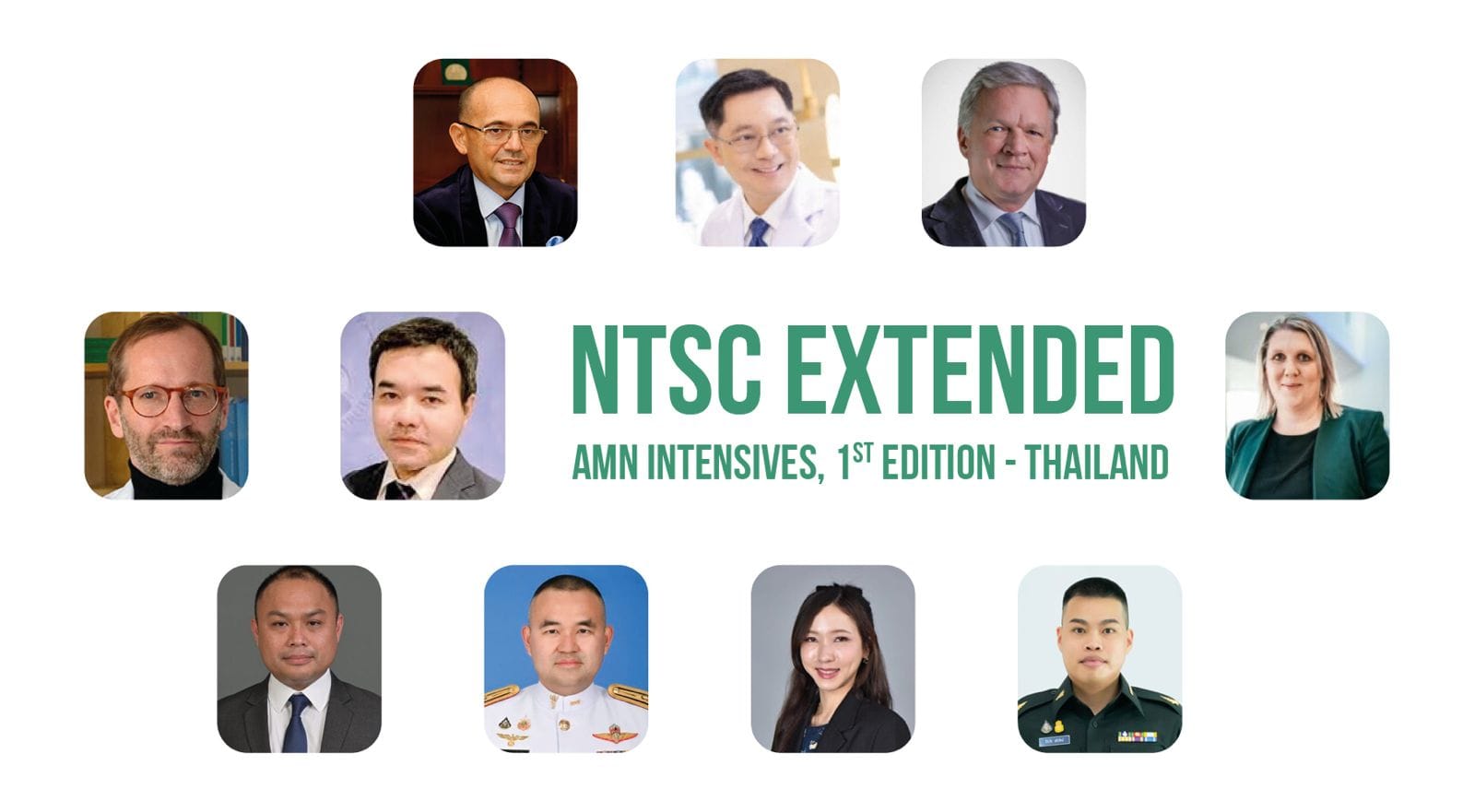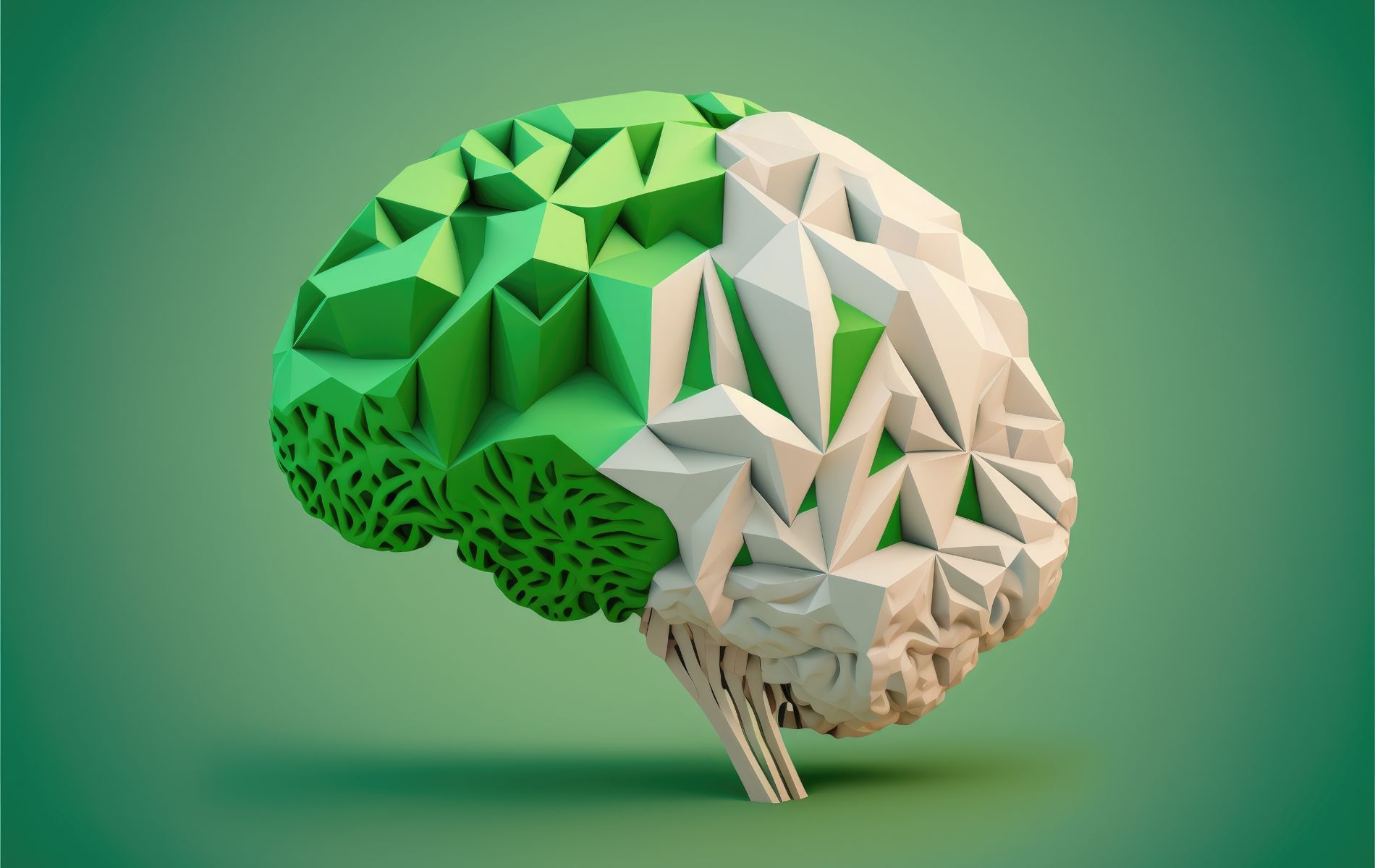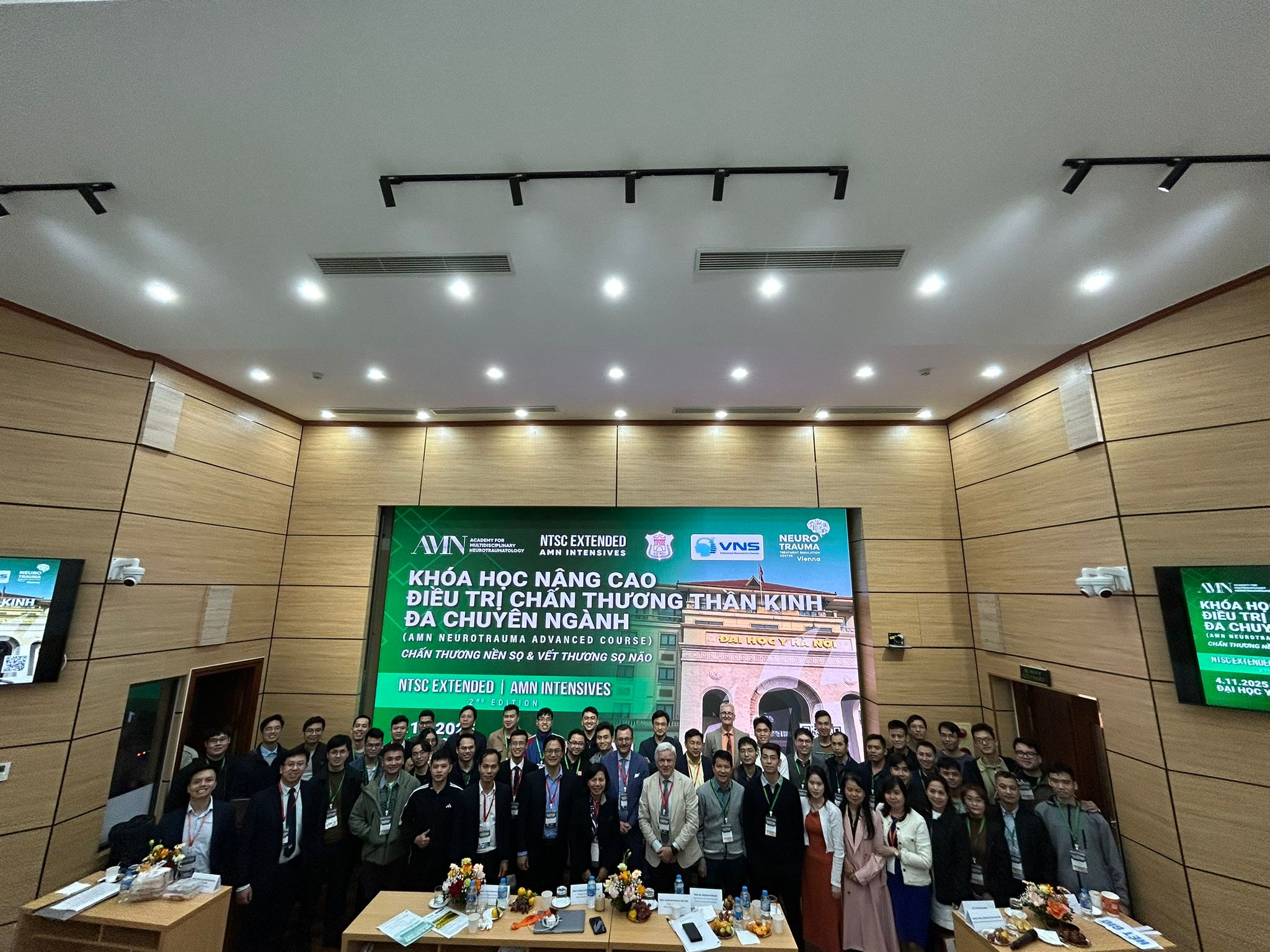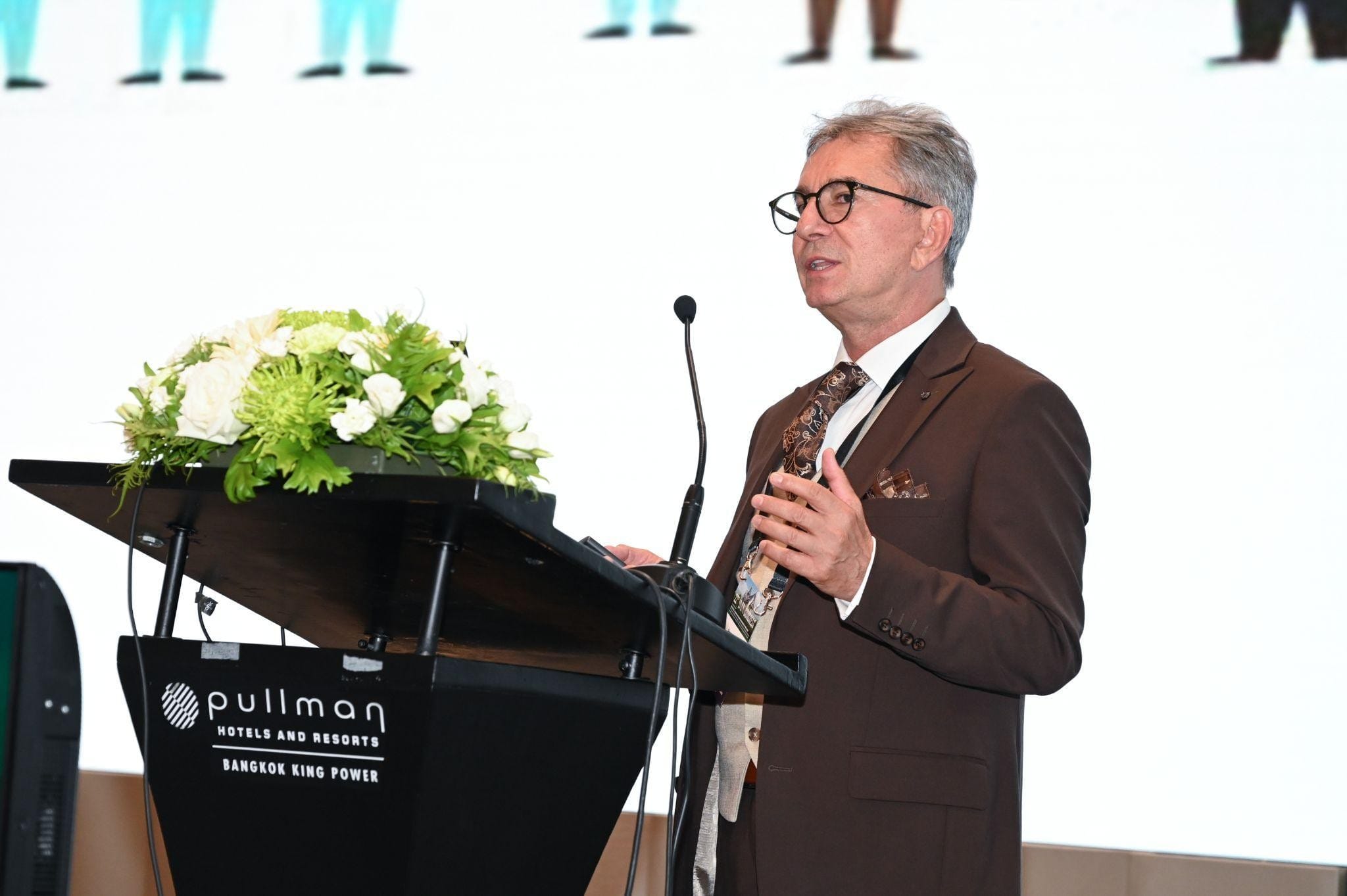Breaking Barriers in Neurotrauma Care: NTSC Extended | AMN Intensives – Thailand 2025
On July 3, 2025, at Phramongkutklao College of Medicine, in Bangkok, Thailand, the 1st Edition of NTSC Extended | AMN Intensives took place—a groundbreaking program designed to reshape how traumatic brain injury (TBI) is managed worldwide.
The field of neurotrauma faces several critical gaps:
- Short-term focus: Due to a lack of follow-up after acute care and nihilistic approaches to cognitive, behavioral, and depressive disorders resulting from trauma;
- Fragmented systems: Specialists may lack in certain areas (e.g., rehabilitation) and rarely collaborate across the “Chain of Recovery.”
- Resource disparities: Low-income countries lack data, rehabilitation options, and specialists.
Considering all this, NTSC Extended | AMN Intensives aims to cover the gaps and focuses on changing the current approaches within the system and shifting the treatment paradigm from short-term focus to long-term follow-up.
Highlights of NTSC Extended included:
✔ Cadaveric workshops (life-saving procedures);
✔ High-fidelity simulations (ER to ICU scenarios)
✔ Information from global experts from various fields related to TBI.
Participants from Uzbekistan, Azerbaijan, Turkmenistan, Hong Kong, Thailand, the Philippines, Vietnam working or studying in various fields related to neurotrauma (e.g., neurosurgery, neurology, ICU care, rehabilitation) improved their knowledge and practical skills in TBI management, and networked and discussed country-specific differences in approaches to neurotrauma management, fostering international collaboration and long-term patient-centered care.
“We are focusing every year on every opportunity for countries to come together and share experiences. This is a good opportunity to focus on multidisciplinary team training and meet different specialists from the emergency system to rehabilitation, to discuss all problems in the multidisciplinary field of traumatic brain injury. I hope it will be a wonderful opportunity for all specialists to work together and find the gaps to address.” – Dr. Parvin Akbarov, Azerbaijan
Meet the Faculty: Global and Thai Experts in Neurotrauma Care
This program was co-directed by Prof. Dafin F. Mureșanu, Secretary General of the AMN and President of the European Federation of NeuroRehabilitation Societies (EFNR), together with General Siraruj Sakoolnamarka, Neurological Surgeon at Bangkok Hospital and former President of the Royal College of Neurosurgical Surgeons of Thailand and Thai Association of Neurovascular Surgeons, and Prof. Christian Matula, Vienna’s leading specialist in neurosurgery and neurosurgical intensive care and the Chairman of the Education and Training Committee of the AMN.
Prof. Peter Lackner from Klinik Floridsdorf in Vienna and Assoc. Prof. Dilok Tantongtip from Thammasat University in Bangkok combined their expertise in neurology, health management, rehabilitation, and neurosurgery as coordinators of this program.
“It’s a great pleasure to be at the first NTSC – Neurotrauma Simulation Center – in Bangkok. I think it’s a big step forward in improving neurotrauma care here in Thailand. It’s especially interesting and also inspiring to see the people participating and how enthusiastic they are in doing simulations on neurotrauma. So, for me, it’s a good opportunity to extend my knowledge about how neurotrauma care is done here in Thailand and improve it with my expertise, hopefully.”– Prof. Peter Lackner, Austria
NTSC Extended – AMN Intensive brought together a world-class faculty of neurosurgeons, neurologists, rehabilitation specialists, and critical care specialists—each chosen for their extensive experience in TBI management. The co-organizers and coordinators of the program were joined by the faculty: Prof. Stefanie Duchac (professor of speech therapy at SRH University) and Thailand’s top military-medical experts, including Lt. Col. Weerawong Sangphosuk (skull-base surgery specialist at Phramongkutklao Hospital), Lt. Col. Asst. Prof. Panu Boontoterm (Neurological surgeon, Phramongkutklao Hospital), Lt. Col. Dr. Chutima Plukmonton (Thammasat ICU), Maj. Theethawat Sathirarat (Emergency and Critical Care Medicine Department, Fort Somdej Phranaresuan Maharaj Hospital), Dr. Prinrasar Mongkolkul (Srinakharinwirot University), Lt. Gen. Clinical Prof. Dr. Kriangchai Prasongsukarn (Surgeon General, Royal Thai Army), and Col. Dr. Tanongson Tienthavorn, Lt. Col. Dr. Boonchot Kiangkittiwan, and Lt. Col. Dr. Anisong Pilakasiri – all three from Phramongkutklao Hospital.
The Evolution of NTSC: From Vienna to the global stage
The journey of NTSC began in 2022 in Vienna, with a 5-day intensive training program hosted at four leading healthcare institutions. By integrating the expertise of neurosurgeons, neurologists, rehabilitation specialists, and intensivists, the first editions laid the foundation for what is now a global phenomenon, extending to Asia and beyond.
In its past editions, NTSC showcased participants from over 10 countries how multidisciplinary collaboration can improve patient outcomes and perspectives, not only in acute treatment, but also in long-term rehabilitation and reintegration into daily life.
Through a blend of theoretical lectures, hands-on simulations, and visits to the hospitals, participants worked together and exchanged perspectives and professional experience to develop actionable implementation plans for their home countries.
Some of the NTSC participants became long-term collaborators of the AMN, bringing their expertise to shape the PRESENT registry or participating as speakers of the AMN Congresses and even becoming part of the NTSC faculty.
Conclusions
The NTSC Extended | AMN Intensives – Thailand Edition bridged European and Asian perspectives to neurotrauma management and care, uniting global expertise to reshape patient outcomes. This program demonstrated a successful implementation and paved the way for future collaborations worldwide.
Designed and coordinated by those who oppose neurotrauma nihilism, this event combined hands-on training with theoretical framework, and sets an example of multidisciplinary collaboration in one often overlooked yet critical field of neurosciences – neurotrauma.
